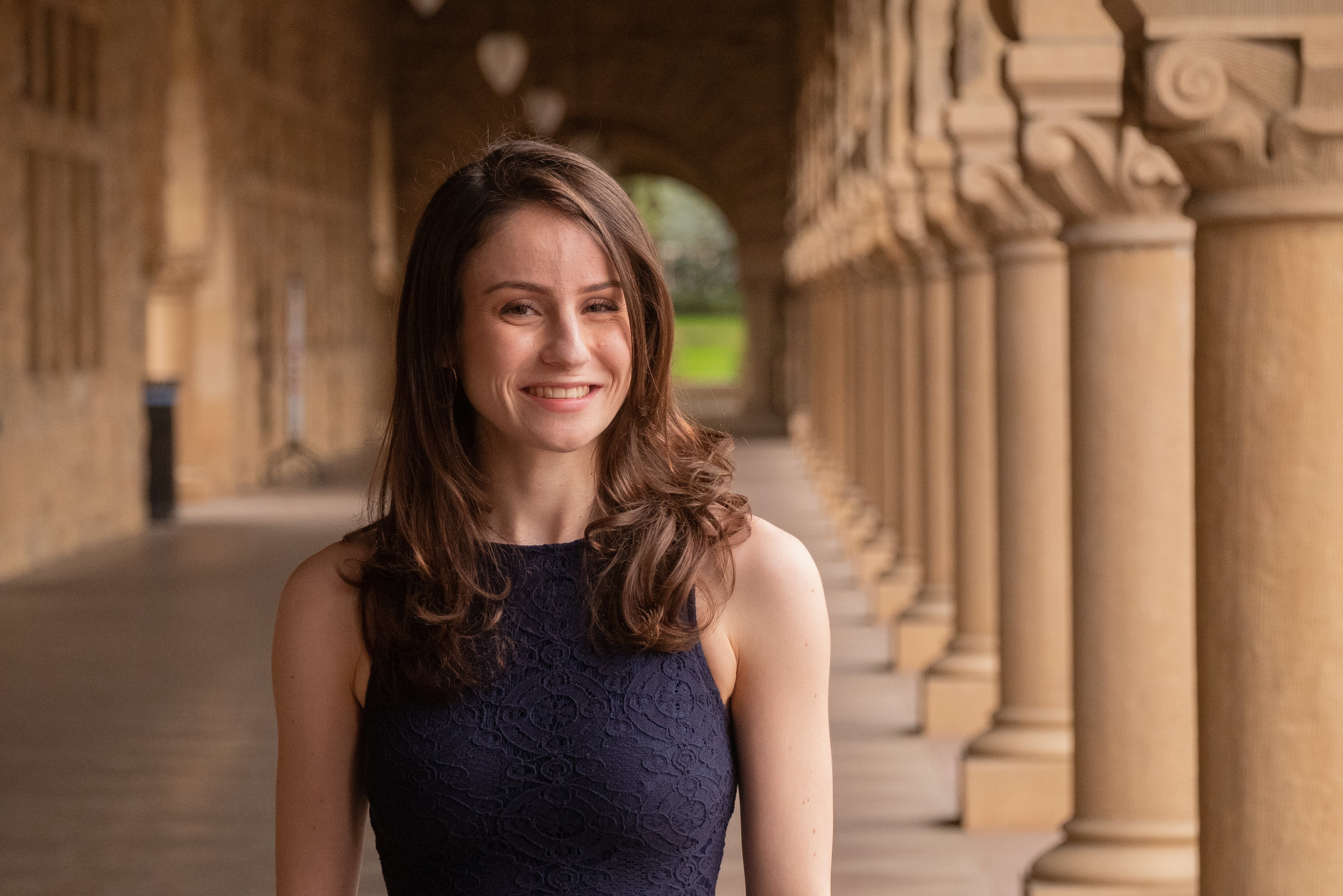“I was shaking. It still doesn’t feel real,” said Anat Peled ’20, recounting her reaction on Nov. 26 when she found out she was a Rhodes Scholar for her home country of Israel. Peled is currently majoring in history with an emphasis in intellectual history and political philosophy and minoring in symbolic systems. She is one of two Stanford students selected this year.
Cyrus Reza ’20, one of this year’s 32 recipients from the United States, was also awarded with the distinction. He declined The Daily’s interview request.
Before studying at Stanford, Peled who speaks Arabic, worked as project manager at the nonprofit, Budo for Peace, which connects Arab and Jewish people through the martial arts.
Peled said that “languages are an entrance into a worldview,” into a culture someone may not have previously been exposed to.
For instance, Peled would practice her Arabic with a Jewish woman who fled Syria. Peled found that the woman “spoke a world into being.” She added, “A world that was gone, she reconstructed through language.”
“It’s like peeking behind a curtain,” she added.
As a polyglot, Peled speaks Arabic, Hebrew, English and Russian, and is able to read French.
“Language learning, the very act of it, just helps you understand the other,” she said.
During weekends, Peled would practice her Arabic with a Jewish woman who fled Syria. Peled found that the woman “spoke a world into being.” She added, “A world that was gone, she reconstructed through language.”
Peled learned that lesson first-hand, and wrote about it in an essay about Syrian proverbs that won her the 2019 Donald and Robin Kennedy Undergraduate Award for the best undergraduate essay on a Jewish theme.
For her essay, Peled requested Syrian proverbs from members of a Facebook group for the Syrian community in Israel. She found that participants rewrote the proverbs in Hebrew and, through language, were able to reconstruct their memories of a society they no longer lived in.
Reflecting on her studies at Stanford, Peled finds that one of her most formative experiences was being a humanities student. Peled is proud to be a history major.
“Everyone goes running towards the CS department,” she said. “But, they forget that there’s some of the best faculty in the world here” for humanities disciplines.
Peled said that she learned to question various parts of history through one of her mentors in the department, Mark Mancall, an emeritus faculty member who inspired her to pursue history. Mancall taught Peled to “unlearn, and I think that’s the essence of learning.”
Her senior thesis examines the kibbutz, a cooperative settlement based on complete equality and integral in the founding of Israel. Though the kibbutz’s founders are revered in Israel, Peled believes that citizens often “forget their social context and the values that drove them.”
“I love these stories we tell about the past, and I think that history is about freeing up our imagination,” adding that the study of it “helps us imagine a different future.”
Peled is also the co-founder and president of the Stanford International Security Undergraduate Network and a Daily staff member.
Peled hopes to emulate the “intellectual and moral bravery” of the historians and thinkers she has studied by continuing the research of her home country. Inspired by her parents who are both academics, Peled wants to further pursue the relationship between the past, present and future through academia and opinion writing in Israel in order to foster understanding between individuals in different groups in Israeli society.
This article was updated to exclude some information related to Peled’s former work experience due to safety concerns.
A previous version of this article incorrectly stated that Peled’s essay about Syrian proverbs won her the 2019 George and Charlotte Shultz Fellowship for Modern Israel Studies. She did receive this honor, but for her essay she received the 2019 Donald and Robin Kennedy Undergraduate Award.
This article has also been corrected to better reflect the background of individuals from whom Peled requested proverbs. It has also been corrected to reflect the spelling of Mark Mancall’s name, and to reflect that Peled is currently working on her senior honors thesis; she has not finished it. This article has also been corrected to reflect that while Peled is a Daily staff member, she is not a staff writer specifically.
A previous version of this article also mischaracterized the focus of Peled’s thesis, the nature of a kibbutz and the scope of Peled’s work. The Daily regrets these errors.
